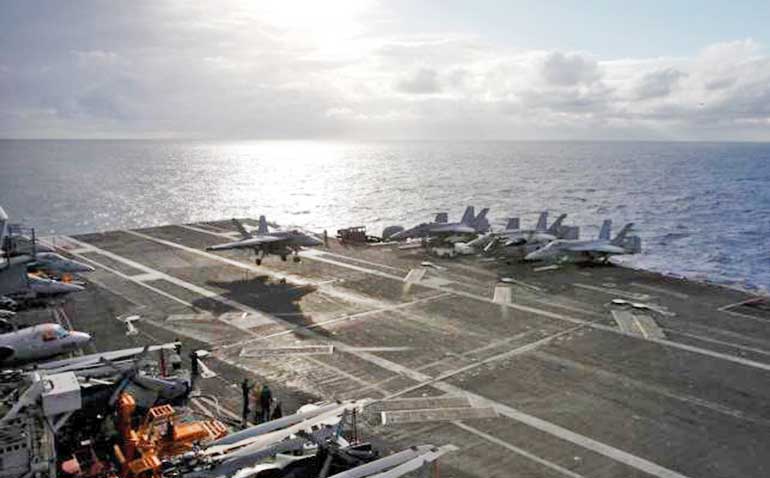Monday Feb 23, 2026
Monday Feb 23, 2026
Monday, 21 March 2016 00:00 - - {{hitsCtrl.values.hits}}
 Reuters: U.S. presidential candidate Donald Trump’s portrayal of Japan as a free-rider on security is stirring worries in Tokyo about damage to its U.S. alliance, and could embolden hardliners keen to bolster Japan’s military in the face of a rising China.
Reuters: U.S. presidential candidate Donald Trump’s portrayal of Japan as a free-rider on security is stirring worries in Tokyo about damage to its U.S. alliance, and could embolden hardliners keen to bolster Japan’s military in the face of a rising China.
The U.S.-Japan alliance has been the lynchpin of Tokyo’s security policy for decades, but worries have simmered in recent years as to whether Washington will continue to be willing and able to defend its key Asian ally.
Comments from the Republican Party frontrunner have done little to allay those fears.
“If somebody attacks Japan, we have to immediately go and start World War III, okay? If we get attacked, Japan doesn’t have to help us,” Trump said at a campaign speech late last year. “Somehow, that doesn’t sound so fair.”
Trump has also accused Japan of stealing jobs and criticised the U.S.-led 12-nation Trans-Pacific Partnership trade pact that Tokyo sees as vital for strategic as well as economic reasons.
“If you listen to his comments (on security), the United States would become isolated so I think there is great anxiety for allied countries,” Itsunori Onodera, who served as defence minister under Prime Minister Shinzo Abe, told Reuters.
Last year, Abe spent considerable political capital enacting controversial legislation that allows Japan’s military to defend friendly countries under attack, a major reinterpretation of the country’s pacifist constitution. “It is incumbent on Japan to protect itself and its defence is necessary for the alliance to be maintained in the best possible posture,” said a source close to Abe.
Abe also wants to formally revise the post-war charter to further loosen limits on military action overseas.
“Most people consider Trump bad news, but for those who want to revise the constitution and strengthen the military, it actually provides a boost for their position,” said a former Western diplomat still in touch with Japanese policymakers.
As host to around 50,000 U.S. troops, Japan is vital to Washington’s “rebalance” of its economic and security focus to the Asia-Pacific region.
Trump did not respond to requests for comments about the U.S.-Japan alliance.
Both Washington and Tokyo are alarmed by China’s increasing assertiveness in the South China Sea, where Beijing has territorial rows with several Southeast Asian nations. Japan has a separate dispute with China over tiny islands in the East China Sea.
Like many Trump observers around the world, Japanese policy makers at first watched with amusement and then disbelief as the reality TV star and property tycoon garnered growing momentum.
Only in recent weeks have they begun taking Trump’s chances seriously and are now scrambling to find out who is advising him on security, another government source said. Japanese policymakers have not geared up specifically to counter what they see as his misleading rhetoric, which seems to hark back to an outdated 1980s vision of Japan, the source close to Abe said.
Publicly, Japan is playing it politely. Asked about Trump’s candidacy on Wednesday, Japanese Chief Cabinet Secretary Yoshihide Suga told reporters: “We are of course watching this because of the impact such a large country has, but we cannot otherwise comment on another country’s election.”